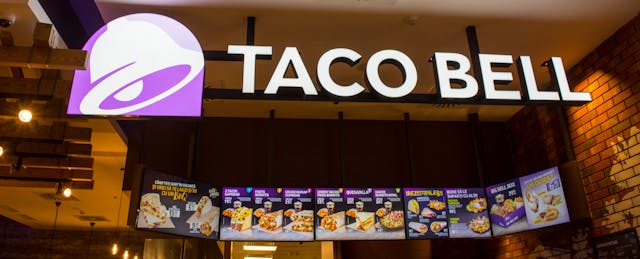What if a fast-food gig could help you complete a bachelor’s or master’s degree?
It’s a quiet trend that’s sweeping some of the country’s major employers. Walmart, Lowe’s, Discover and Lyft are just a few of the companies that have signed on to offer employees education-as-a-benefit, meaning these companies help students pay for—or completely cover—the cost of tuition for education programs.
One company steering the trend is Guild Education, which partners with companies and education providers to offer employees programs ranging from master’s degrees to a high-school diploma. Today the Denver-based startup announced it has raised $40 million in a Series C financing round led by Felicis Ventures. Salesforce Ventures, Rethink Impact & Education, Workday Ventures and Silicon Valley Bank also contributed to the round, along with existing investors Harrison Metal, Bessemer Venture Partners, Redpoint Ventures and Cowboy Ventures.
Guild has raised nearly $71.5 million since it was founded by Rachel Carlson and Brittany Stich in 2015. It last raised $21 million in 2017, when it had around 60 employees. Today that number is 160. Carlson, who is the company’s CEO, says much of the internal growth has occurred on the product and development teams, which create the company’s online platform where students can choose and take online accredited education programs.
The company has racked up some major corporate partners in the last year, including Walmart, which will allow students to complete programs for $1 per day. In response to that growth, Carlson says Guild has had to hire more success coaches, who help students navigate work and school responsibilities.
Programs offered through Guild range from a bachelor’s degree in psychology, to a certificate in graphic design, as well as a bachelor’s program in management. Nonprofit university partners offering these programs include the University of Denver, University of Florida and Bellevue University.
The company also hosts professional development courses through universities such as Harvard and Georgia Tech via a partnership with the nonprofit massive online course provider edX. And it offers a program for students working to complete their high school education.
Companies that partner with Guild can choose what programs they will subsidize for their employees’ education. Walmart, for example, will cover the cost of tuition, books and fees for its employees. But there’s a catch: they have to choose to study business or supply-chain management.
Other companies, like Taco Bell, covers a wider set of options. According to Carlson, “Taco Bell allows students to attend any program” because they view themselves as “a launch pad” where employees can start their career.
Whether a company will cover all programs or only a select few depends on the employers’ wider strategy, says Artem Gulish, a senior policy strategist at the Georgetown University Center on Education and the Workforce. “If they see it as a way to develop talent from inside then it makes sense for them to limit the programs that they think are helpful,” he says. “If it’s just a retention mechanism then they could let employees choose any program.”
So far, Gullish sees Guild’s work as “potentially positive” as “the demand for education and skills is going up and helping employers be better prepared for that could be a good thing.”
But balancing school and work can be a difficult and demanding juggling act, and Gullish is unsure if the company will successfully help any substantial portion of the low-wage workers it targets. “It’s difficult enough for full-time workers to pursue an education even without the additional challenges of family or financial issues,” he says.
One challenge is that few employees who are given education benefits options take advantage of them. The Wall Street Journal recently reported that while nearly 90 percent of mid- and large-size companies offer tuition reimbursement, less than 10 percent of employees at those companies take advantage of the benefits.
That figure is even lower at Guild’s partner companies, where only 3 to 5 percent of employees take advantage of the educational offerings, says Carlson. “We are optimistic that our companies want to go beyond that.”
Gullish adds that he believes the online learning environment may present its own challenge for frontline workers who may be unaccustomed to the format. “Online usually works better for people who already have some experience with post-secondary education or who are fairly good with technology,” he says. “They do provide coaches which is helpful I’m sure, but it’s not clear how much progress is actually possible given the challenges that are involved.”
He also points out that some companies may offer the benefits, but not allow for flexible working schedules so workers can prioritize classes.
Guild currently claims to reach more than 2.5 million workers, and if even 3 percent took advantage of the program, that would roughly translate to 75,000 employees enrolled. The company did not share how many students have so far completed courses or degrees through its platform, although some partners have individually shared outcomes. Chipotle, for instance, claimed last year that it provided assistance to nearly 3,500 employees through the Guild partnership.
Carlson says Guild raised the most recent round “ahead of when we needed to.” “Most is going into savings account,” she says, as well as to continue expanding to new university and corporate partners.


